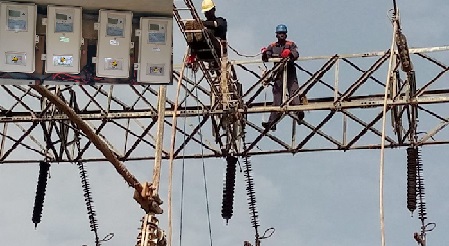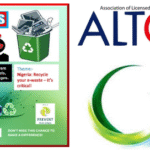By Elvis Eromosele
In Nigeria, few issues stir as much raw emotion as the price and quality of electricity. Everywhere across the length and breadth of the country electricity supply is unstable. Over the years, successive governments have insisted that Nigerians are underpaying for electricity. The solution? Increase the tariff under the guise of reflective pricing. Yet, month after month, citizens grope in the dark, both literally and metaphorically.
Now, the current administration is singing the same old song. And while the government tells us it is about efficiency and subsidy removal, the reality is far more sinister. Aso Rock itself is installing solar, admitting silently that even at the highest Band A tariff, the power supply is unreliable and the cost unsustainable. What, then, is the fate of the average Nigerian?
To understand the electricity pricing debate, we must step back. In the last 30 years, Nigerians have endured epileptic power supply, regardless of which party is in power. NEPA (jokingly dubbed Never Expect Power Always) became PHCN, and PHCN was unbundled into Generation Companies (GenCos), Distribution Companies (DisCos), and the Transmission Company of Nigeria (TCN). The reforms were touted as the beginning of a new era. Instead, they marked the dawn of privatized suffering.
Tariffs have increased over 10 times since 2000. Yet, the power supply remains poor, unstable, and unavailable in many communities. While the government mouths “cost-reflective pricing,” consumers are asked to pay for darkness. The prepaid meter, intended to end estimated billing, has become a new tool of oppression, many are still without them, and those who have them often complain of fast-draining units with no clear explanation.
So, what is reflective pricing? In theory, it’s a system where electricity tariffs reflect the actual cost of generating and distributing power. In practice, however, it’s a blunt instrument used to extract more money from citizens without accountability or improvement in service.
The situation is so dire that the supposed economic logic collapses under scrutiny. What is the point of reflective pricing when generation is still less than 6,000MW for over 200 million people? What is the point of reflective pricing when transmission lines are outdated and often overloaded? What is the point of reflective pricing when distribution networks are fragmented, inefficient, and corrupt? What is the point of reflective pricing when every customer cannot have pre-paid metre?
Each Minister of Power comes with the same set of excuses: legacy debt, subsidy pressure, inadequate gas supply, sabotage, and more recently, climate change. The current Minister joined the chorus last year, claiming the tariff hike was due to subsidy removal. Now, another increase is looming.
But why should Nigerians keep paying more for failure? Where are the investments in renewable energy at the community level? What happened to the Siemens power deal? How is it that with over ₦1.6 trillion pumped into the power sector since privatization, we still live in darkness?
The impact of Nigeria’s electricity conundrum goes beyond homes and small businesses. It is killing industries. It’s stifling innovation. It is driving up the cost of living. Entrepreneurs are forced to invest in alternative power, diesel, petrol, and now solar, eating deep into profits and productivity.
The youth, eager to tap into the digital economy, find themselves stuck with gadgets but no light. Hospitals struggle to power critical equipment. Schools can’t run e-learning. Cold-chain businesses are constantly on the brink of collapse. This is not just about electricity. It’s about development. It’s about equity. It’s about the future.
In my mind, it’s time to move from platitudes to action. To fix Nigeria’s power sector, several urgent steps must be taken.
First, we need true transparency and accountability. Nigerians deserve to understand the real cost of generating power and how tariff decisions are made. DisCos should be compelled to disclose their service delivery metrics publicly.
Second, metering for all must become a national priority. The current system of estimated billing is nothing short of extortion. To ensure fairness and accuracy in billing, the government must commit to achieving 100 per cent metering within the next 12 months.
Third, Nigeria must embrace local energy solutions. Encouraging the development of localized mini-grids and solar cooperatives, particularly in rural and peri-urban areas, will boost energy independence. Communities should be incentivized to manage and own their power infrastructure.
In addition, regulatory oversight must be strengthened. The Nigerian Electricity Regulatory Commission (NERC) must stop acting like an apologist for DisCos and start functioning as a true watchdog that protects consumer interests.
Moreover, Nigeria must shift its focus to renewable energy. Blessed with abundant sunlight and wind, the country has no excuse for its continued dependence on an unreliable national grid. A serious commitment to renewables can provide a sustainable path forward.
It’s time to address the elephant in the room. Reflective pricing, in its current form, is a myth, a beautifully packaged illusion. What it reflects are the deep-rooted inefficiencies and injustices that plague Nigeria’s power sector. Until there is a real improvement in power supply, the only thing this pricing model reflects is the growing frustration of millions of Nigerians.

Eromosele, a corporate communication professional and public affairs analyst, wrote via: elviseroms@gmail.com








